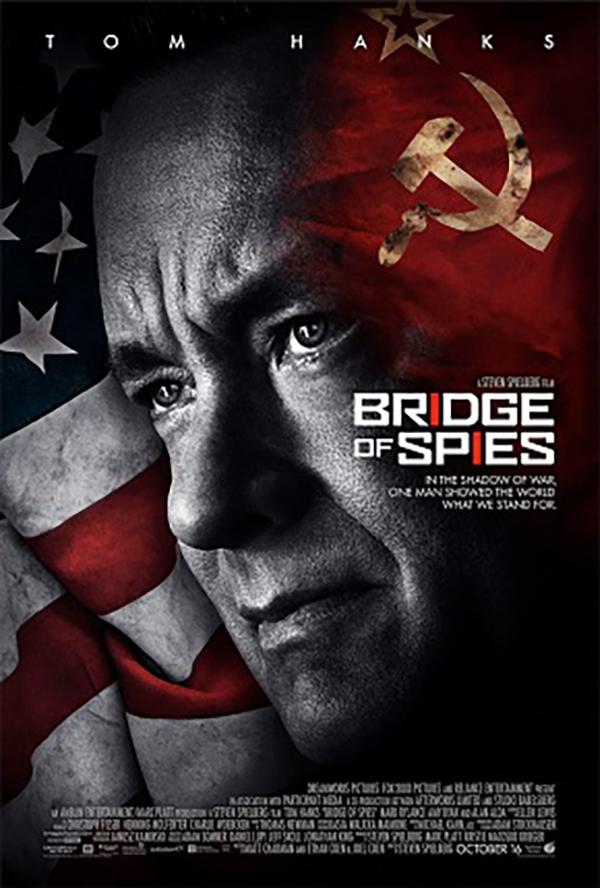Tom Hanks stars in Steven Spielberg’s ‘Bridge of Spies’
Steven Spielberg and Tom Hanks team up for the Cold War film “Bridge of Spies,” a retelling of the 1960 U-2 incident between the United States and Soviet Russia.
October 19, 2015
Academy Award winners Steven Spielberg and Tom Hanks teamed up for the fourth time in the Cold War film “Bridge of Spies,” a masterful Hollywood retelling of the 1960 U-2 incident between the United States and Soviet Russia.
Set in the shadows of surveillance and the paranoia of imminent nuclear annihilation, the U.S. government entrusts the defense of suspected Soviet spy Rudolf Abel (Mark Rylance) to the shrewd and straight-shooting James B. Donovan (Tom Hanks), a successful, all-American insurance lawyer from Brooklyn, New York. This case becomes irreversibly tangled when a young U.S. reconnaissance pilot is shot down and captured by the Soviets following Abel’s trial. Whisked off to the volatile border between East and West Berlin, Donovan is tasked with negotiating a speedy, high-profile swap between the two soldiers while navigating Soviet deception, the precarious political situation of post-war Berlin and the insufferably detached bureaucracy of the U.S. government.
Seamless and elegant, “Bridge of Spies” is a rare example of true, classical Hollywood filmmaking. From the film’s infallible three act structure to the precise and dependable cinematography of Spielberg’s longtime collaborator (Janusz Kaminski), the picture captivates audiences from beginning to end. The movie is made even more commendable with a stellar script helmed by the award-winning Coen brothers and its refreshing lack of explicit violence.
Hanks is perfectly cast as he embodies the idea of pure, idealistic American values through his relatable character of an unassuming, honest and empathetic man. This creates the ideal foil to Rylance’s quiet but no less brilliant performance of the stoic Abel, who, while outwardly branded as a treacherous and conniving villain, is just as honorable in the performance of his national duties. Spielberg manages to tear away the complexities of war, diplomacy and politics to present us with a simple human relationship, which, against all odds, develops into a mutual understanding and respect and guides the audience through the turmoil of Cold War politics.
While “Bridge of Spies” is undoubtedly a beautiful piece of cinema, there are elements of predictability that unfortunately render parts of the film formulaic. Donovan’s moral dilemma, while brilliantly delivered through Hanks’ layers of finely nuanced emotion, becomes almost banal as we expect him to pull through as the quintessential protagonist.
The tension in various scenes, while palpable, is unsurprising and redolent of a hazy feeling of unspecified déjà vu. Though undeniably well executed, the film’s biggest struggle will be to convince an increasingly demanding contemporary audience of its classical and
exceptional artistry.
A version of this article appeared in the Oct. 19 print edition. Email Min-Wei Lee at [email protected].















































































































































